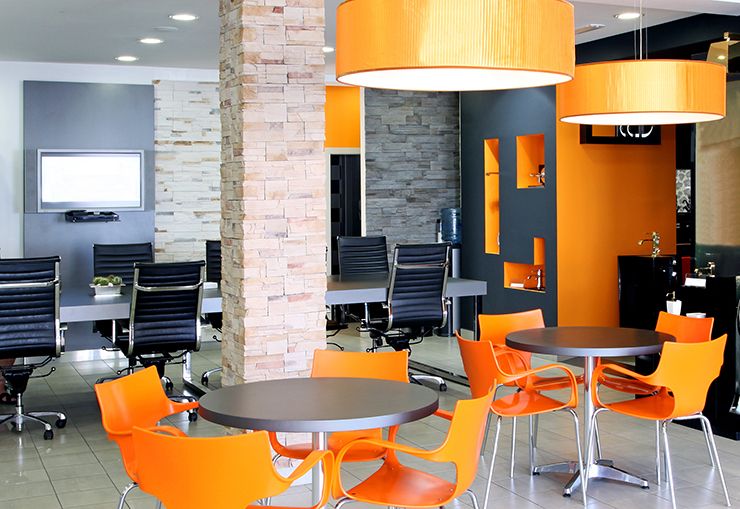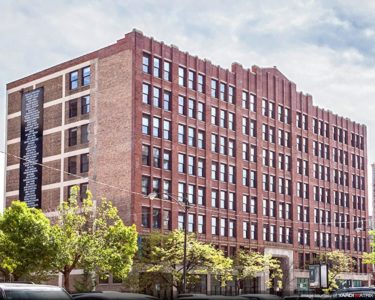Most new companies are the fruit of a problem-solving idea. Whether it’s keeping their healthcare spending orderly or providing high-schoolers with tailored guidance and test prep, entrepreneurs have to go through the hurdles of building a company, before they can deliver their idea as a solution to others.
We’ve been conducting a series of Q&As that address what is possibly the most common problem new companies face: finding the best space in which to operate. We sat down with several industry professionals, in order to gather insight on the modern challenges faced by small-to-medium-sized businesses looking for office space. We also wanted to gauge their opinion on which is best: traditional office or modern co-working space?
Parking a Start-up in Chicago’s Busy RiNo
Our series continues this week with tips and observations from ParqEx, a technology company that caters to car owners driving in urban areas where parking demand is high, yet supply is considerably scarce and/or expensive. We spoke to CEO & Founder Vivek Mehra and Marketing Associate Alan Foresta about their quest for the best office space.
The company launched its app in 2015, and gathered 600 subscribers during its first month, initially only covering residential parking spaces in Wrigleyville and the West Loop.
While it started out in a co-working office, the company now operates out of 325 W Huron St. in Downtown Chicago, with 12 full-time employees and a few part-time contractors. The ParqEx database now also covers Milwaukee, Madison, San Francisco, Washington, D.C., and Los Angeles, with plans to further expand in 2018.
Read the interview below to see how they managed to keep ParqEx in Chicago’s busy River North.
Q: Tell our readers a little bit about your business: what industry are you in and what services do you provide?
A: ParqEx is a technology platform that unlocks the hidden value sitting idly in privately owned parking spaces. Most people typically think we’re in the parking industry, because we deal with parking spaces, but we actually consider ourselves part of the real estate ecosystem. Parking spots are really just small pieces of real estate, and our goal is to help maximize the value of those pieces for all the entities that own, manage, or use them.
We do this by providing a set of services, which can be applied depending on the circumstances of the property in question. For locations that have underutilized parking spots, we offer the ParqEx Private Parking Marketplace, which monetizes these by connecting the owners with drivers in need of a place to park—a concept similar to Airbnb, but for parking.
Since many private parking spots are securely located behind garage doors or gates, ParqEx also offers a unique IoT-powered solution called Access+, which controls these entryways using the ParqEx app. The Access+ service helps fuel the Marketplace by making it easier to rent secure parking locations, and it also offers great value to property managers, by removing the costs and headaches of traditional entry methods such as clickers, fobs, or codes.
Finally, the third offering in our platform is a full-service guest-parking suite called GuestParq. It is designed to provide multi-family condo and apartment buildings with an improved way to offer, manage, and enforce the parking offered to guests.
Q: Where is your office space located and what did you consider when searching for it? Did you use a third-party company?
A: Our office is located in the River North neighborhood of downtown Chicago. As a startup, cost and flexibility were our most important considerations. We were previously based in a co-working space, which was ideal for our earliest stages. However, it started to become too expensive and unwieldy, as our team grew. We therefore needed to find something that was furnished and wasn’t a long-term commitment, on relatively short notice. In other words, we needed to find a quality sublease. Location was also part of the equation, but the other factors were always going to dominate.
We used Transwestern to help us with the search and to negotiate the sub-lease terms. They helped us identify an office that met all of our immediate needs, and, luckily, it was also located in a great part of the city.
Q: What do you think is the most important thing when searching for office space?
A: It is really important to have a clear understanding of the difference between your “needs” and your “wants.” We knew what we needed in terms of size, cost, and timing, and those factors drove the decision process. When you’re out looking at potential locations, it is easy to visualize how a certain space could work or how certain features would be really neat—so if you’re not grounded in the couple of key needs for your organization at that time, it is easy to make a decision that you may later regret.
Q: What challenges did you encounter in the process of leasing/buying the office space and how did you deal with them?
A: Timing was difficult for us, because we needed the process to happen much faster than it usually does. We had to be out of our co-working space by a certain date and had started our search process late, so we were under the gun. This is where our Transwestern broker was extremely valuable, because he brought relationships and knowledge that helped streamline the process for us.
Q: How do you feel about co-working spaces?
A: Co-working spaces are a great option for certain working situations. They provide smaller organizations with a “plug-and-play” setup that offers the type of flexibility that a traditional office lease simply cannot. That is huge for early-stage startups, independent contractors, and regional expansion teams of larger companies. Many co-working spaces also help to foster the type of collaboration that these smaller entities crave, by encouraging both social and professional interaction. We both enjoyed and benefited from our experience at WeWork and would do it all over again if we could.
Q: What would you recommend to other start-ups looking for office space?
A: Early-stage start-ups should really think hard about whether they’re ready to take on the commitment of signing a lease of their own, or whether the flexibility of co-working is a better option for them. If they know they’re ready to take the plunge, they should be careful not to bite off more than they can chew, because the monthly lease payments can add up quickly and shorten the company’s runway.











